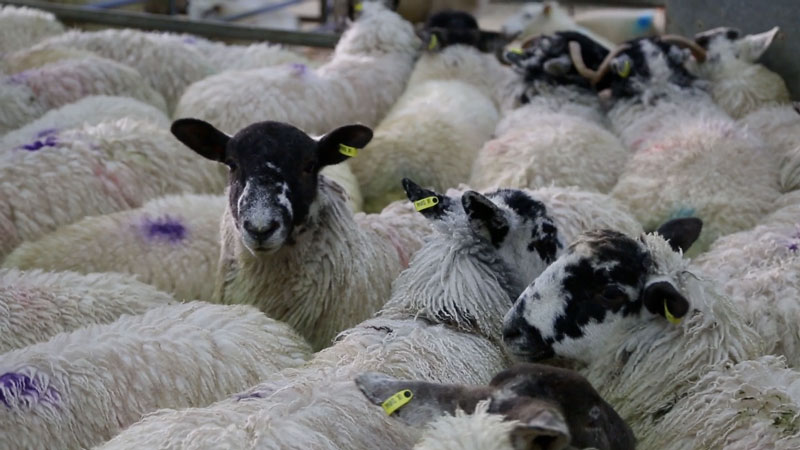
Prices were up slightly on recent weeks at a sheep auction in Yorkshire where over 4,000 sheep were up for sale. This year has seen consistently low lamb prices and has seen values drop by as much as 20 percent.
Jeremy Eaton, general manager at Craven Cattle Market Auctions in Skipton, North Yorkshire, said that exchange rates had made export trade more difficult and that there has been too much ‘focus on the home market’ within the livestock industry.
Farming leaders have become so concerned about low prices for lamb that the issue has been raised at European level. The sector contributed more than five billion Euros to the EU economy last year.
Earlier this month, NFU livestock board chairman Charles Sercombe stated, “The 85 million head sheep flock herd in Europe contributes enormously to the economic wellbeing vitality of rural areas – around €5.2 billion euros last year. But after the consistently low lamb prices seen this year, the sector needs urgent and innovative action to arrest the poor returns seen by many producers.
“In particular, it is critical that we challenge the strong competition European farmers’ face from outside the EU. New Zealand has a fixed EU quota of 228,000 tonnes. We believe that the move from frozen to fresh, and from carcases to bone in cuts represents a substantive change in the trade since the original agreement in the 1980’s and this change is having an effect on the UK and EU sheep market.
“We also need to set up a clear and transparent deadweight pricing systems, ensuring that we have the most accurate market data available. A transparent grading and dressing specification system – just as we have in the beef carcase classification system – should be created to ensure we have reliable scrutiny. Beyond simple market intelligence, the lack of a consistent grading and weighing system for sheep means that important aspects such as genetic improvement and efficiency cannot be reliably measured.
“The sector is crying out for some common sense – particularly in the UK where farmers are hard hit for small infringements. We need regulators to introduce tolerances into our inspections system that do penalise farmers for minor errors such as ear tag reading failures or the odd missing record or a few ear tags. Government should work towards a system that is based on batch recording as the default for all movements.
The NFU, NFU Scotland, NFU Cymru, and Ulster Farmers’ Union have continuously met with retailers and its processor representatives to discuss the crucial role they have to play in supporting the British lamb sector.
